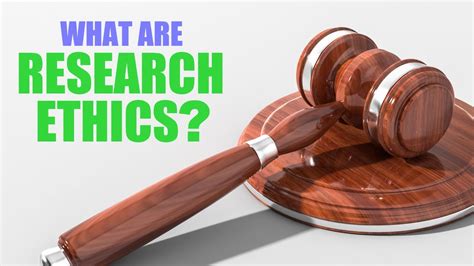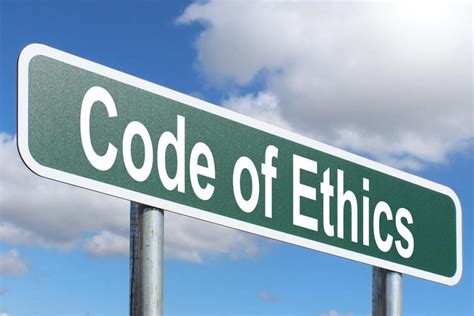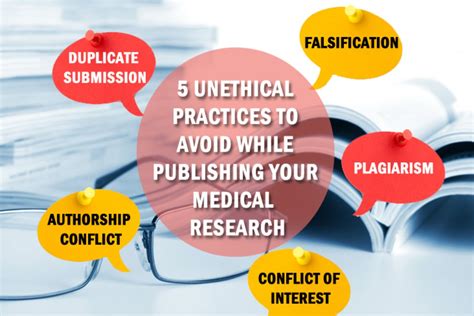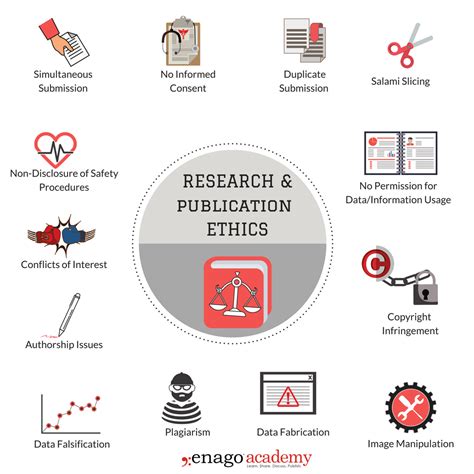Breaking News


Popular News


Explore the importance of ethical guidelines, development of codes, impact of misconduct, and role of review boards in scientific research and experimentation.The Ethics of Scientific Research and Experimentation
When it comes to pushing the boundaries of scientific knowledge and innovation, it is crucial to uphold ethical standards and guidelines. This not only ensures the integrity and reliability of the research but also safeguards the well-being of those involved. In this blog post, we will explore the importance of ethical guidelines in scientific research and experimentation, the development of ethical codes over time, and the impact of unethical research practices on both individuals and society as a whole. We will also delve into the role of ethical review boards and the consequences that arise from ethical misconduct. It is essential to understand the significance of maintaining ethical standards in scientific endeavors and the profound effects that ethical lapses can have on the progress and reputation of the scientific community.
Contents

Scientific research and experimentation play a crucial role in pushing the boundaries of human knowledge and understanding. However, this pursuit of knowledge must be guided by ethical guidelines to ensure that the rights and safety of all individuals involved are protected.
One of the key reasons why ethical guidelines are important in scientific research is to safeguard the welfare of research participants. These guidelines provide clear parameters for how individuals should be treated during the course of a study, ensuring that their rights are respected and their well-being is prioritized.
Moreover, adherence to ethical guidelines helps to maintain the integrity and credibility of research findings. When research is conducted in an ethical manner, the results are more likely to be reliable and trustworthy, which is essential for advancing scientific knowledge and informing policy and practice.

Over time, the development of ethical codes has played a crucial role in shaping the standards and practices of scientific research and experimentation. These codes provide a set of guidelines and principles that researchers and institutions must adhere to in order to ensure the ethical conduct of their work. The development of ethical codes has been a continuous process, evolving in response to new technologies, methodologies, and ethical challenges that arise in the field of scientific research.
One of the key aspects of the development of ethical codes is the establishment of ethical review boards, which are responsible for evaluating the ethical implications of research studies and experiments. These boards are composed of experts in various fields, including scientists, ethicists, and community members, and their role is to ensure that research protocols are in compliance with ethical standards and regulations.
The development of ethical codes also involves the consideration of various ethical principles, such as respect for the autonomy of research participants, beneficence, non-maleficence, and justice. These principles serve as the foundation for ethical decision-making in scientific research and help to guide researchers in the ethical conduct of their work.
In addition, the development of ethical codes has led to the establishment of policies and regulations regarding the use of human and animal subjects in research. These regulations aim to protect the rights and well-being of research participants and ensure that research is conducted in an ethical and responsible manner.

Unethical research practices in the scientific community can have far-reaching consequences, not only for the individuals involved, but also for the credibility and trustworthiness of the entire field. Unethical behavior such as fabricating data, manipulating results, or failing to disclose conflicts of interest can lead to skewed or false findings, ultimately undermining the validity of scientific research as a whole. This can have a detrimental impact on public trust in scientific institutions, as well as the allocation of research funding and resources.
Furthermore, the impact of unethical research practices extends beyond the scientific community. False or misleading information resulting from unethical practices can have serious implications for public health and safety. For example, a pharmaceutical company failing to disclose harmful side effects of a drug could lead to harm or injury to unsuspecting patients. In the case of environmental research, fraudulent data could result in inadequate regulation and protection of natural resources or ecosystems.
Moreover, the consequences of unethical research practices can be long-lasting, with the potential to tarnish the reputation of individuals, institutions, and entire fields of study. Once trust is eroded, it can take considerable time and effort to rebuild, if it can be rebuilt at all. Additionally, the resources required to investigate and address instances of unethical conduct can divert attention and funding away from legitimate research efforts, hampering scientific progress and innovation.
| Consequences of Unethical Research Practices: |
|---|
| Undermines the credibility of scientific research |
| Potential harm to public health and safety |
| Long-lasting damage to individual and institutional reputations |
| Diversion of resources away from legitimate research efforts |

Ethical review boards, also known as institutional review boards (IRBs), play a crucial role in safeguarding the rights and welfare of research participants. These boards are responsible for reviewing and approving research protocols to ensure that they comply with ethical guidelines and regulations. They assess the potential risks and benefits of the research, as well as the methods used to obtain informed consent from participants.
Furthermore, ethical review boards are tasked with monitoring ongoing research to ensure that participants are not subjected to any harm. They have the authority to suspend or terminate studies that are found to be in violation of ethical codes. Additionally, they provide guidance to researchers on ethical issues and promote a culture of research integrity and ethical conduct.
Development of ethical codes and guidelines is also a part of the role of ethical review boards. They continuously contribute to the evolving landscape of research ethics by revising and updating ethical guidelines in response to new developments and challenges in the field. This ensures that research practices remain in line with the highest ethical standards and promote the well-being of research participants.

When ethical guidelines are not followed in scientific research and experimentation, the results can be damaging and far-reaching. Unethical conduct in research can lead to a loss of trust in the scientific community, not only by the public but also by other researchers and professionals in the field. The consequences of ethical misconduct may include tarnished reputations, damaged careers, and a negative impact on the overall credibility of scientific research.
Furthermore, the results of ethical misconduct can have serious implications for the subjects or participants involved in the research. In some cases, unethical conduct can lead to physical or psychological harm to individuals who have volunteered to participate in studies. This can have lasting effects on their well-being and may erode the trust between researchers and the community being studied.
In addition, unethical behavior in scientific research can also have legal consequences. If ethical guidelines and protocols are not followed, researchers and institutions may face legal action, fines, or penalties. This can not only damage the individuals or organizations involved but can also have broader implications for the entire field of scientific research. The fallout from ethical misconduct can lead to increased oversight and regulation, as well as a more skeptical public attitude towards scientific findings.
Ultimately, the results of ethical misconduct in scientific research and experimentation can have a long-lasting and detrimental impact on the individuals involved, the scientific community as a whole, and the reputation and credibility of research institutions. It is therefore crucial for all researchers and professionals in the field to uphold the highest ethical standards in their work to avoid these negative outcomes.

What are the ethical considerations in scientific research?
Ethical considerations in scientific research include informed consent, avoiding harm to subjects, and ensuring the research is conducted for the greater good.
Is it important for scientists to follow ethical guidelines in their work?
Yes, it is crucial for scientists to adhere to ethical guidelines to ensure the safety and well-being of research subjects and the integrity of the research.
How can scientists ensure that their research methods are ethical?
Scientists can ensure their research methods are ethical by obtaining informed consent from participants, minimizing harm, and maintaining integrity and honesty in their work.
What are some examples of unethical behavior in scientific research?
Examples of unethical behavior in scientific research include fabrication of data, plagiarism, and failing to obtain proper consent from participants.
How does ethical misconduct in scientific research affect society?
Ethical misconduct in scientific research can erode public trust in science and lead to harmful consequences for individuals involved in the research.
What are some common ethical dilemmas faced by scientists in their work?
Common ethical dilemmas faced by scientists include balancing the potential benefits of research with potential harm to participants, and conflicts of interest in reporting research findings.
How can the scientific community address ethical challenges in research and experimentation?
The scientific community can address ethical challenges by establishing clear ethical guidelines, promoting transparency and accountability, and fostering a culture of ethical conduct in scientific research.